 Shaun Woodward (right) the MP famed for the twin disgraces of his defection from the Conservatives to Labour and a stint working with Esther Rantzen on That’s Life, is now Creative Industries minister and is busy singing the virtues of the UK’s Digital TV switchover plans.
Shaun Woodward (right) the MP famed for the twin disgraces of his defection from the Conservatives to Labour and a stint working with Esther Rantzen on That’s Life, is now Creative Industries minister and is busy singing the virtues of the UK’s Digital TV switchover plans.
According to the minister, there’s going to be a golden digital age in the UK as more and more employment is provided by the creative industries, our children enjoy interactive education, the sick benefit from Tele-medicine and the new technologies even help the government with transport and defence industries.
Woodward speaking last week at a Royal Television Society event, Digital Switchover- Making it Happen did not seem to think that finding the £26.99 that you can now buy a Freeview box from Argos for, would pose a problem amongst the financially challenged members of the electorate in the deprived St Helens constituency he now represents. Woodward in fact hinted obliquely that although they might fail to feed their children properly and many have high levels of debt, he’d observed some good ‘entertainment kit’ in their homes.
Accompanied by Ford Ennals (below right) the Chief executive of Digital UK, the body charged with making it happen, he made clear that BBC licence fee; although not yet agreed, would be settled by the end of the year and this was would fit in with the digital switchover schedule. ‘The Government needs to be satisfied that licence fee payers are getting value for money,’ he told the audience but he was ‘confident that they’ll get the right number’ at the end of the process of negotiation with the BBC.
Ennals revealed that surveys from trial areas indicated high levels of satisfaction particularly amongst the over 75s, who along with other vulnerable groups that might find the new technology challenging, would be getting assistance. Ennals is busy co-ordinating Digital UK’s nine project strands that include the thorny issue of resolving the platforms being made available to those in Multi Dwelling Units (that’s flats and the like to you and me).
The switchover which is being rolled out region by region, will swap out the old analogue transmissions with super new digital ones starting in what was the Border TV region in 2008 and finishing up, not as originally planned in London, but in the less challenging areas of Tyne Tees and Ulster thus avoiding any conflict with 2012 Olympic games coverage in the nation’s capital.
 Digital UK had the current 98.5% coverage as a target and expects to meet this with additional coverage being by satellite, cable and broadband. Current figures indicate a rump of around 2% of refuseniks, those viewers content with a meagre 4 or 5 channels who see no value in multi-channel viewing, but expectations are this number will shrink as the digitisation spreads across the country like a warm front.
Digital UK had the current 98.5% coverage as a target and expects to meet this with additional coverage being by satellite, cable and broadband. Current figures indicate a rump of around 2% of refuseniks, those viewers content with a meagre 4 or 5 channels who see no value in multi-channel viewing, but expectations are this number will shrink as the digitisation spreads across the country like a warm front.
The average cost per household is predicted to be around £130 the extra costs are likely to be those second and third TV sets that are so easily forgotten, new rooftop aerials and replacement of analogue video recorders.
Woodward repeatedly refused to answer the question as to why the government felt it was the BBC’s responsibility to handle switchover issues rather than Government, who have been happy to find funding to subsidise the over 75s TV licence fees.
The Minister agreed that there were questions still to be resolved, like the value of continuing the current ‘gifting’ of spectrum to Public Service Broadcasters after switchover, and how the desire for High Definition would be met, but they were being evaluated so no need to worry there then.
Digital UK with stakeholders across industry and broadcasting would not make the mistakes seen in Italy, where a planned ‘big bang’ switchover for 2006 had not even registered as a moderate whimper. In the UK it is all so far going swimmingly and Ford thinks the BBC will be keeping up the good work as long as the BBC licence fee is agreed by year end as Shaun assured us it will.
 Sky TV has a strong market presence in providing big screen football to the drinking public in licensed premises in the UK. This virtual monopoly has long been a bone of contention for ‘Mine Hosts’ keen to encourage soccer imbibers to their premises for the big games, but over a proverbial barrel in terms of the price they have to pay.
Sky TV has a strong market presence in providing big screen football to the drinking public in licensed premises in the UK. This virtual monopoly has long been a bone of contention for ‘Mine Hosts’ keen to encourage soccer imbibers to their premises for the big games, but over a proverbial barrel in terms of the price they have to pay.  Greek, Czech and Arabic satellite TV channels have signed up with the UK’s Premier League for coverage of the UK’s beautiful game, and the deal they have is at a much better price (as we’d expect), than the one Sky negotiated, in what is a competitive market for commercial coverage of the national game.
Greek, Czech and Arabic satellite TV channels have signed up with the UK’s Premier League for coverage of the UK’s beautiful game, and the deal they have is at a much better price (as we’d expect), than the one Sky negotiated, in what is a competitive market for commercial coverage of the national game. 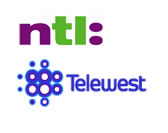 The much heralded NTL/Telewest merger, expected to be the saviour of the UK cable industry, has become the subject of another Private Equity takeover rumour and the likely winner, if it goes ahead, is Richard Branson.
The much heralded NTL/Telewest merger, expected to be the saviour of the UK cable industry, has become the subject of another Private Equity takeover rumour and the likely winner, if it goes ahead, is Richard Branson.  Market reaction
Market reaction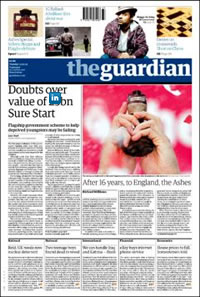 The UK’s national leading left newspaper, The Guardian, has been looking at what it thinks is the future of the daily newspaper. Since the successful launch of its Berlin edition in 2005, which rolls out of the presses somewhere between the size of a tabloid and the more traditional ‘quality’ broadsheet, it’s done a pile of blue sky thinking.
The UK’s national leading left newspaper, The Guardian, has been looking at what it thinks is the future of the daily newspaper. Since the successful launch of its Berlin edition in 2005, which rolls out of the presses somewhere between the size of a tabloid and the more traditional ‘quality’ broadsheet, it’s done a pile of blue sky thinking.  Since the
Since the  DAB in the UK has had a good week with prices dropping to an all time low, with High Street retailers are now making available a DAB radio with CD player for under £50.
DAB in the UK has had a good week with prices dropping to an all time low, with High Street retailers are now making available a DAB radio with CD player for under £50. 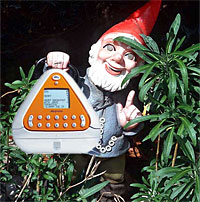 Sky’s satellite hybrid
Sky’s satellite hybrid 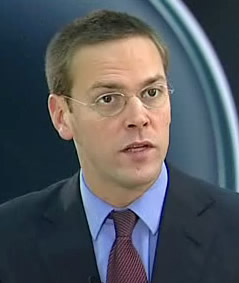 BSkyB results for the last year were broadly in line with predictions, but seasoned watchers of all things financial, recognise tell-tale signs of a flattening of the growth curve. The company has managed its spend on programming well, but technology costs remain high, with significant outgoings on expensive High Definition equipment, that won’t bring instant revenue returns.
BSkyB results for the last year were broadly in line with predictions, but seasoned watchers of all things financial, recognise tell-tale signs of a flattening of the growth curve. The company has managed its spend on programming well, but technology costs remain high, with significant outgoings on expensive High Definition equipment, that won’t bring instant revenue returns. 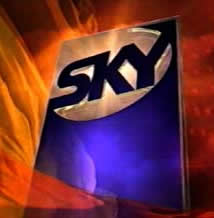 James Murdoch the CEO of BSkyB told the corporate world that “Our industry is changing faster than ever before and for Sky, 2006 has been an important and exciting year.”
James Murdoch the CEO of BSkyB told the corporate world that “Our industry is changing faster than ever before and for Sky, 2006 has been an important and exciting year.” 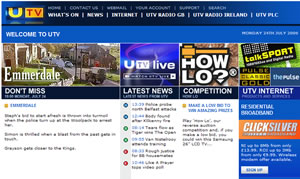 Following the surprise resignation of SMG’s Chief executive Andrew Flanagan, the pieces are in place for consolidation of the Scottish and Ulster media outfits that provide the Celts with their ITV services.
Following the surprise resignation of SMG’s Chief executive Andrew Flanagan, the pieces are in place for consolidation of the Scottish and Ulster media outfits that provide the Celts with their ITV services. 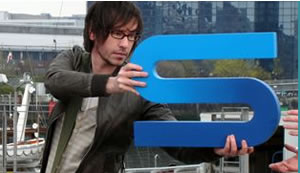 With many predicting the imminent departure of Charles Allen, ITV, a shareholder in SMG has troubles enough of it’s own to be ruled out of a takeover.
With many predicting the imminent departure of Charles Allen, ITV, a shareholder in SMG has troubles enough of it’s own to be ruled out of a takeover.  Shaun Woodward (right) the MP famed for the twin disgraces of his defection from the Conservatives to Labour and a stint working with Esther Rantzen on That’s Life, is now Creative Industries minister and is busy singing the virtues of the UK’s Digital TV switchover plans.
Shaun Woodward (right) the MP famed for the twin disgraces of his defection from the Conservatives to Labour and a stint working with Esther Rantzen on That’s Life, is now Creative Industries minister and is busy singing the virtues of the UK’s Digital TV switchover plans.  Digital UK had the current 98.5% coverage as a target and expects to meet this with additional coverage being by satellite, cable and broadband. Current figures indicate a rump of around 2% of refuseniks, those viewers content with a meagre 4 or 5 channels who see no value in multi-channel viewing, but expectations are this number will shrink as the digitisation spreads across the country like a warm front.
Digital UK had the current 98.5% coverage as a target and expects to meet this with additional coverage being by satellite, cable and broadband. Current figures indicate a rump of around 2% of refuseniks, those viewers content with a meagre 4 or 5 channels who see no value in multi-channel viewing, but expectations are this number will shrink as the digitisation spreads across the country like a warm front.  The news that ITN’s shareholders have agreed to shore up the embattled UK commercial news provider to the tune of £1 million, might be thought to inspire confidence in the organisation’s long term future.
The news that ITN’s shareholders have agreed to shore up the embattled UK commercial news provider to the tune of £1 million, might be thought to inspire confidence in the organisation’s long term future.  One of the challenges facing Stephen Carter’s replacement as head of the UK communications regulator Ofcom, is how the frequency spectrum released by the move to digital terrestrial TV will be allocated. Not only is the decision crucial for Ofcom, who must reconcile both the requirement to allow the market to operate while taking into account the British citizen, but it also figures in the BBC’s strategy around the impending licence settlement and the organisations’ worldwide ambitions.
One of the challenges facing Stephen Carter’s replacement as head of the UK communications regulator Ofcom, is how the frequency spectrum released by the move to digital terrestrial TV will be allocated. Not only is the decision crucial for Ofcom, who must reconcile both the requirement to allow the market to operate while taking into account the British citizen, but it also figures in the BBC’s strategy around the impending licence settlement and the organisations’ worldwide ambitions.  How will displays receive the content to create the impetus for a large scale take up? The likely options are; Cable under what is expected to be a Virgin branded offering; Sky who are pushing HD to protect and grow their revenue; the BBC who are committed to both an alternative to Sky on Satellite and providing their content on all viable platforms and broadband, which looks increasingly viable by virtue of higher transfer rates to the home, along with improved digital compression technologies.
How will displays receive the content to create the impetus for a large scale take up? The likely options are; Cable under what is expected to be a Virgin branded offering; Sky who are pushing HD to protect and grow their revenue; the BBC who are committed to both an alternative to Sky on Satellite and providing their content on all viable platforms and broadband, which looks increasingly viable by virtue of higher transfer rates to the home, along with improved digital compression technologies. 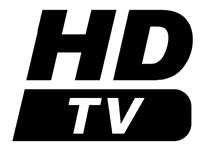 France, slower off the blocks in moving to a Digital Terrestrial TV service, with its’ amusingly acronym-ed TNT, has a solution that builds in HD capabilities, and for sure the UK will not wish to be seen falling behind mainland Europe.
France, slower off the blocks in moving to a Digital Terrestrial TV service, with its’ amusingly acronym-ed TNT, has a solution that builds in HD capabilities, and for sure the UK will not wish to be seen falling behind mainland Europe.  Some commentators expect ITV’s share price to renew vigour over the coming weeks, as rumours of a fresh takeover are fanned by its institutional shareholders. This is despite poor audience performance and strong competition from a publicly owned, but very commercially managed, C4. There are those who are keen to take over the ITV helm where Greg Dyke so publicly failed.
Some commentators expect ITV’s share price to renew vigour over the coming weeks, as rumours of a fresh takeover are fanned by its institutional shareholders. This is despite poor audience performance and strong competition from a publicly owned, but very commercially managed, C4. There are those who are keen to take over the ITV helm where Greg Dyke so publicly failed.  Some wonder why the continued interest in ITV as the deregulated non-linear future hurtles closer, but in truth, ITV has a value in both its content and brand that may be undervalued. The channel when compared against the triple and ‘four-play’ options that are so exciting the Telco executives, still has programmes that viewers will seek out. The next 12 months are critical to the brands long term success, as it’s multi channel strategy is tested by the Freeview expansion of C5 with two more channels. Not forgetting the move of Channel 4’s film channel to an advertising supported free to air proposition, a strong assertive strategy could turn the corner for the dominant UK commercial player but more On Digital type disasters could spell a long and unpleasant demise.
Some wonder why the continued interest in ITV as the deregulated non-linear future hurtles closer, but in truth, ITV has a value in both its content and brand that may be undervalued. The channel when compared against the triple and ‘four-play’ options that are so exciting the Telco executives, still has programmes that viewers will seek out. The next 12 months are critical to the brands long term success, as it’s multi channel strategy is tested by the Freeview expansion of C5 with two more channels. Not forgetting the move of Channel 4’s film channel to an advertising supported free to air proposition, a strong assertive strategy could turn the corner for the dominant UK commercial player but more On Digital type disasters could spell a long and unpleasant demise.  The other left field possibility is that US media titan Time Warner in selling off its UK AOL business has an eye on acquiring a much bigger UK fish that looks astonishingly like the UK’s main commercial TV network- eyes should be glued to the unfolding drama.
The other left field possibility is that US media titan Time Warner in selling off its UK AOL business has an eye on acquiring a much bigger UK fish that looks astonishingly like the UK’s main commercial TV network- eyes should be glued to the unfolding drama.